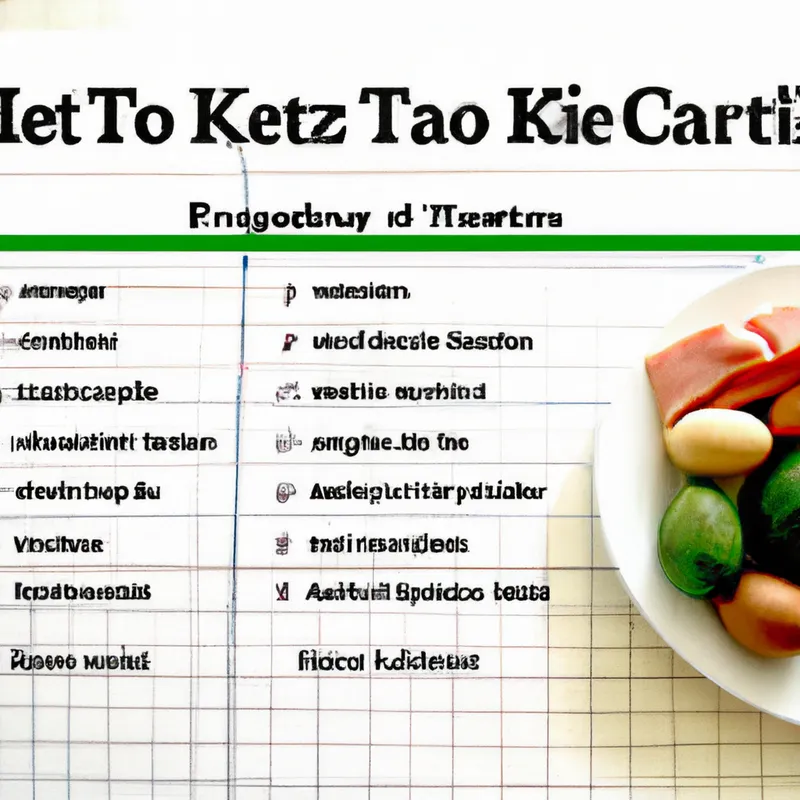Master Keto Meal Plans for Athletic Excellence
Designing a Keto Diet for Team Sports: Strategies for Success
Team sports demand optimal energy, endurance, and quick recovery. Athletes often seek new ways to enhance performance. Many now adopt the ketogenic (keto) diet, a low-carb, high-fat approach. This diet promotes fat as the primary fuel source, improving endurance and mental clarity during games. However, implementing a keto diet requires careful planning. This article presents strategies for designing an effective keto diet for athletes in team sports.
Understanding the Keto Diet
Understanding the keto diet’s foundations is crucial before meal planning. The primary goal is to induce ketosis, where the body shifts from burning carbohydrates to utilizing fats. In ketosis, ketones from fat breakdown serve as an efficient fuel source for physical and mental activities.
Key Components of a Keto Diet
A well-structured keto diet includes three main components: healthy fats, moderate protein, and very low carbohydrates.
– **Healthy Fats**: Choose sources like avocados, olive oil, nuts, seeds, and fatty fish. These fats provide sustained energy and essential nutrients.
– **Moderate Protein**: Include chicken, turkey, fish, eggs, and dairy. Protein is vital for muscle repair and recovery after intense activity.
– **Low Carbs**: Limit grains, sugars, and starchy vegetables. Focus on non-starchy vegetables, leafy greens, and low-sugar fruits like berries.
Maintaining this balance ensures athletes receive the energy needed for performance while staying within ketosis dietary parameters.
Meal Planning for Athletes
Meal planning is essential for successfully implementing a keto diet, especially for athletes in team sports. Preparing meals helps avoid quick, carb-heavy options that can hinder progress.
Pre-Game Nutrition
Before games, athletes should eat meals rich in healthy fats and moderate in protein. This approach offers a steady energy source without blood sugar spikes.
– **Example Pre-Game Meal**: Grilled chicken or salmon with a mixed salad topped with avocado and olive oil dressing.
– **Snacks**: Consider keto-friendly options such as cheese sticks, hard-boiled eggs, or mixed nuts. These snacks provide energy and digest easily.
This strategy helps maintain stable energy levels and promotes optimal performance during games.
Post-Game Recovery
Recovery is as vital as pre-game nutrition. After a game, the body needs to replenish energy stores and repair muscle tissue.
– **Example Post-Game Meal**: Baked salmon with steamed broccoli and olive oil. This meal supplies essential fats and protein for recovery.
– **Hydration**: Athletes should prioritize hydration.
Conclusion
In summary, a well-planned keto diet supports athletes in team sports by providing essential energy and promoting recovery.
Below are related products based on this post:
FAQ
What are the main components of a keto diet for athletes?
A well-structured keto diet for athletes includes three main components: healthy fats, moderate protein, and very low carbohydrates. Healthy fats can come from sources like avocados, olive oil, and nuts, while protein sources include chicken, fish, and eggs. It’s important to limit carbohydrate intake by avoiding grains and sugars and focusing on non-starchy vegetables and low-sugar fruits.
How should athletes plan their meals before and after games on a keto diet?
Before games, athletes should consume meals rich in healthy fats and moderate in protein to provide a steady energy source. An example pre-game meal could be grilled chicken or salmon with a mixed salad topped with avocado. After games, athletes should focus on recovery with meals like baked salmon and steamed broccoli, which supply essential fats and protein to help replenish energy stores and repair muscle tissue.
Why is hydration important for athletes on a keto diet?
Hydration is crucial for athletes on a keto diet as it supports overall performance and recovery. Proper hydration helps maintain energy levels, aids digestion, and assists in the effective functioning of muscles and joints. Athletes should prioritize hydration before, during, and after games to ensure optimal performance.















Post Comment